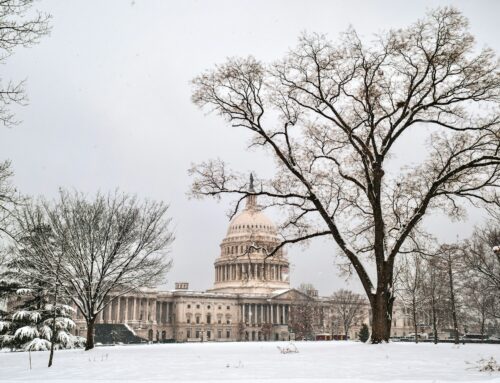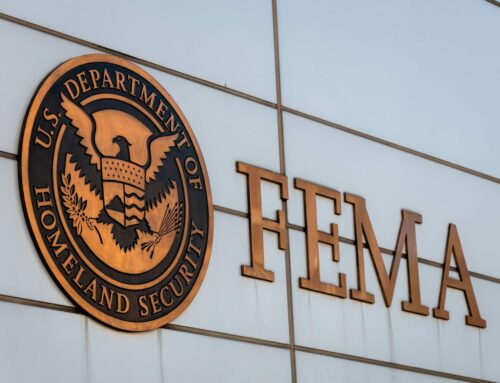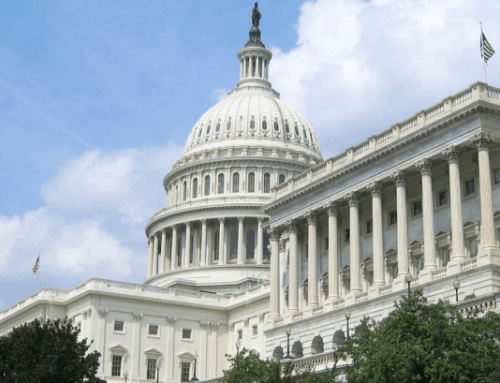Congress's power over the purse is one of the oldest and most fundamental checks on executive authority, and in Washington, three court rulings showed just how easily that power can be tested, defended, or bypassed.
Last Friday, the D.C. Circuit told the administration it could not keep a key federal spending database offline while it appealed a lower court order. On the surface Citizens for Responsibility and Ethics in Washington v. Office of Management and Budget looks like a fight about a website. In reality it is about whether Congress or the White House controls the nation's purse.
Congress passed laws in 2022 and 2023 requiring OMB to post every apportionment decision within two business days, detailing how much of an appropriation an agency can spend, when it can spend it, and any fine print. OMB complied for nearly three years. Then in March 2025, with lawsuits and Government Accountability Office (GAO) investigations already underway into alleged impoundments—when the executive delays or freezes spending Congress has approved—OMB abruptly shut the site down, calling the requirement unconstitutional and a management burden.
A federal judge ordered the site restored, ruling that OMB had clearly violated the law. The administration appealed, and when the case reached the D.C. Circuit, the judges made clear they saw it as far more than a minor paperwork dispute, framing it instead as part of a larger battle over who controls federal spending.
The court pointed to none other than the Glorious Revolution of 1688 in England, when Parliament forced King James II from the throne and established that no money could be spent without legislative approval. This was not just about budget mechanics, but about who governs. That principle became part of the U.S. Constitution, which gives Congress—not the president—full authority over taxation and appropriations. The court saw OMB's shutdown as one more step in a long struggle over whether the executive can decide, on its own, when and whether to spend money that Congress has already approved.
Two other decisions from this week show the stakes even more clearly. In one, a federal district court ordered the administration to release $95 million in congressionally approved funding for the National Endowment for Democracy. The White House had been sitting on the money because it disagreed with some of the Endowment's work. The judge said that was flatly illegal, violating both the law that created the Endowment and appropriations law.
In the other, Global Health Council v. Trump, foreign aid recipients challenged a January 2025 executive order that froze billions in assistance. A district court agreed they were likely right and ordered the administration to release the money. But the D.C. Circuit overturned that decision. Not because the freeze was lawful, but because under the Impoundment Control Act only the Comptroller General, who heads the GAO, can sue to enforce impoundment violations.
Here's the kicker. With that ruling in mind, consider that Congress is now debating whether to slash GAO's budget by nearly half and strip its authority to sue over impoundments. In other words, the same week the appeals court made clear that the Comptroller General is the only cop on the beat for these cases, lawmakers are talking about taking away the Comptroller's badge. If that happens, the next Global Health Council will die in the courthouse lobby, not because the law is on the executive's side, but because no one will have standing to challenge the executive.
Litigation will never be a perfect remedy. Cases take time, facts can be murky, and judges do not always agree. That is why Congress itself is the front line in defending its power over the purse. If lawmakers refuse to fund the watchdogs who enforce transparency laws or choose not to act when the executive ignores them, the president will be the one deciding which programs get funded and which do not.
That is the same fight Parliament won more than three centuries ago when it ended the Stuart kings' ability to spend without consent. It was a turning point for democratic government. If Congress does not defend its own authority over spending, it is not just weakening itself. It is changing the balance of power the Constitution was built to protect and that every member swore to uphold.
- Photo by Eva Trstenjak on Unsplash










